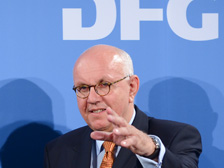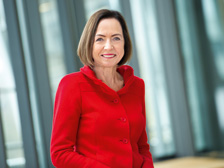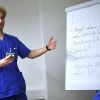International knowledge transfer
Science, research and cooperation: together researchers can contribute to the solution of global problems.

Literacy: For the opportunity to get an education
In some regions of this planet being able to read and write is still a privilege: With the action campaign “Education for all” coordinated by UNESCO the international community has among other things committed to making a determined effort in combatting illiteracy.
Science: For close-knit research networks
Knowledge and academic exchange are valuable assets in today’s globalized world. Germany regards itself as a partner in knowledge networks, including fostering close cooperation with universities in conflict regions.
Supporting the best brains
The German Research Association (DFG) provides funding for outstanding research projects and international talents. The organization headed by Professor Peter Strohschneider as its president also supports and funds numerous international science projects.

Peter Strohschneider © dpa/Arne Dedert
Research: For ethical action
Academic enquiry requires freedom – and freedom requires responsibility. In this context, scholars’ self-control and ethical responsibility are the order of the day, consistently weighing up risks and opportunities.
Collaboration: To exchange knowledge
Cooperation between universities locks into a great international pool of knowledge. Together, researchers can contribute to solving global problems, and that includes with a view to future generations’ living conditions.
“Strategic partnerships and thematic networks serve to link german universities with excellent institutions outside the country.” Margret Wintermantel, President of DAAD, the German Academic Exchange Service

Margret Wintermantel © DAAD/lichtographie.de
The following internet portals provide useful additional information on the topic:
www.bmbf.de
www.research-in-germany.org
www.dfg.de
www.daad.de

